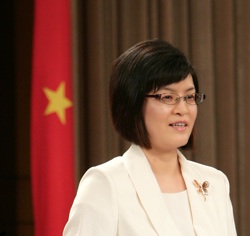 (A cartoon expressing a rather sour German point of view on the British-French "Entente Cordiale" of 1904 -- John Bull walks off with the trollop France (in her scandalously short tricolor skirt) while Germany pretends not to care despite the hidden sword. Source: wikipedia)
(A cartoon expressing a rather sour German point of view on the British-French "Entente Cordiale" of 1904 -- John Bull walks off with the trollop France (in her scandalously short tricolor skirt) while Germany pretends not to care despite the hidden sword. Source: wikipedia)The New Diplomacy has developed with new technology and all the fast paced decision making that goes with that but its roots lie in Treaties, Alliances, Ententes and Cooperation which have tended to prosper as have ties between nations which are still strong, valid and cogent in todays world. After all technology can fail so other things need to be in place to reinforce the conducting of diplomacy. There are various terms which have survived and continue to be used that refer to an established connection between two states or countries. This is a list of a few examples:
1) The 'Auld Alliance' of France and Scotland
2) The 'Entente Cordiale' between France and Great Britain
3) The 'Special Relationship' between the USA and Great Britain
4)'Franco-German Cooperation'
5)The 'Anglo-Portuguese Alliance' of England and Portugal
So which of the four do you think is the oldest historical alliance between two countries? Are these arrangements still valid as working diplomatic ties/alliances?
The first Alliance between France and Scotland proved to be a match born out of a mutual dislike, perhaps even hatred, of England and still gets mentioned when the putative leader of Scotland's Assembly meets the actual President of France. The Anglo French'entente cordiale' celebrated its first centenary in 2004 with barely noticed state visits between the two states save for a few Red Arrows flying overhead in tribute. The 'Special Relationship' has been propagandised at different times but is not a priority now. President Obama removed the statue of America's favourite British Prime Minister Winston Churchill from the Oval Office because his colonial government was presiding when his father was detained without trial in Kenya. President Obama has to spend more time with the growing influence of the BRIC countries of Brazil, Russia, India and China and much less time with the UK and the EU. This is not to deny that there is a common diplomatic and economic bond with the US especially since the Marshall Plan and the British Empire acceded to 'Pax Americana'.
In European terms and world terms a common language or heritage still counts at a certain level. Some powerful links are more powerful than others most notably that of the US and the UK and between Germany and France. During the Iraq War the French and German governments sided with Russia against the UK and the US over the invasion and occupation of Iraq. Former President Jacques Chirac stated his desire that Europe acted as a bulwark against US foreign policy in global and regional terms in particular the US policy in the Middle East which he believes needs countering. The President of France has much more autonomy of position when it comes to diplomacy than many of his counterparts. This is also a left- over of the Anglo Saxon, ie UK and the US, divide and conquer, landshare and grab of the Middle East by mandate and protectorate which lead to France being sidelined and ignored progressively after the Treaty of Versailles onwards.
The answer to my conundrum concerning which of the above examples is the oldest alliance is Portugal and England who signed a treaty in 1386. The truth is that they are all still valid and ongoing arrangements. The old treaties signed between these pairings do not bind them and may not be as relevant but elements of 'soft power' are often exhibited where sabres once rattled. Portugal and the UK are in NATO and the EU (as are Germany, France and the US) so much happens around those two tables with others present. Portugal has given the UK access to air force bases on the Azores, which are owned by Portugal, most notably in 1982 when the UK under a Thatcher government fought Argentina over the Falklands Islands. When Portugal wanted the UK government to stop India, in the form of the Indian Union, from taking back Goa in 1961 which Portugal had occupied since 1510, the UK government could do little as India was independent and the Portuguese government had refused to negotiate with the Indian government.
So it can be seen that some of these arrangements endure, some are more pronounced but events are unfolding fast and the new economic priorities arising from the economic power of the BRIc countries is laying the foundation for new forms of diplomacy which will still have some links to the past. It should be noted that the current economic conflict between China and the US has potential to escalate and China have memories of the way they were treated by the Eight Nation Alliance (Austro-Hungary, Britain, France, Germany, United States, Italy, Japan, Russia) during the Boxer Rebellion when they were forced to sign an unequal treaty in 1901 after being defeated by 45,000 foreign troops. The Chinese play a long tactical game and have no liking for cosy alliances.

Angela Merkel Chancellor of Germany and Nicolas Sarkozy President of France at a Summit Meeting 2009














